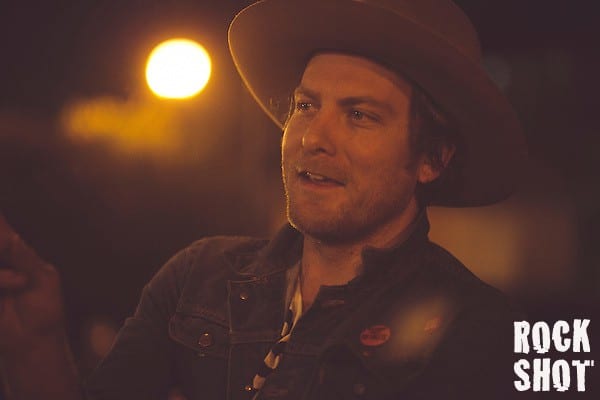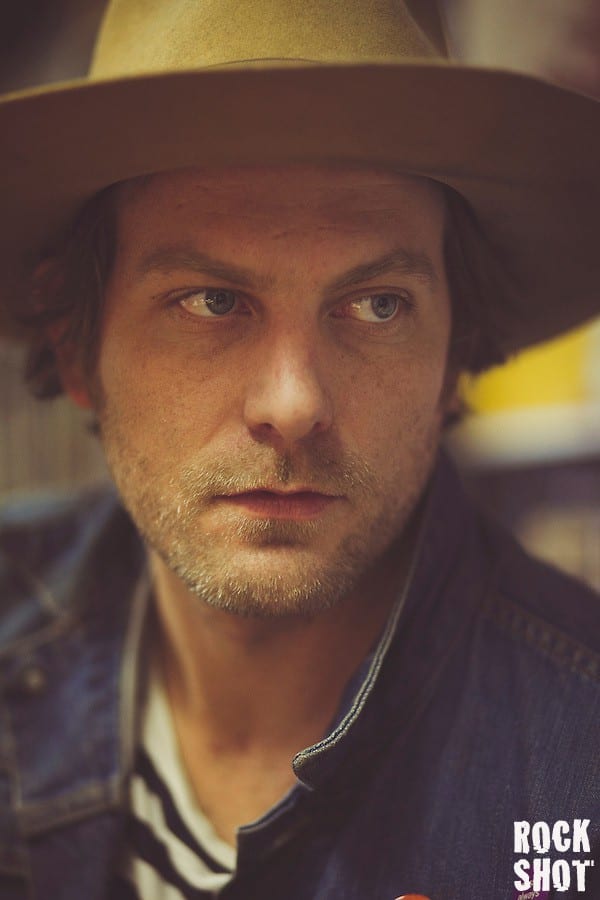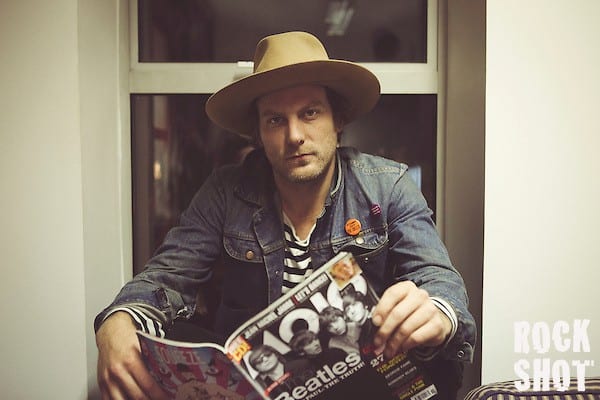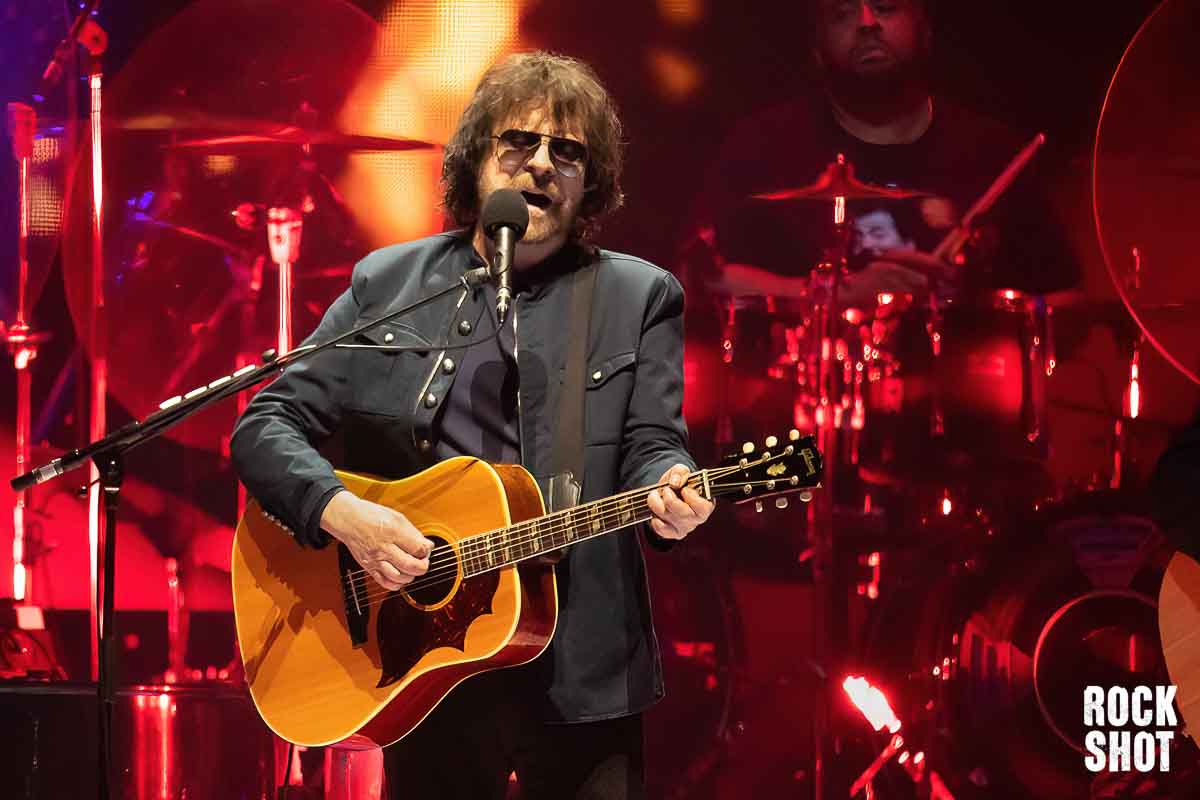Frankie Lee interview: American Dreamer
Reading the bio of American singer Frankie Lee can leave you feeling like you’ve just been fed a pitch from a scriptwriter: he was born on the banks of the Mississippi; aged 12, he moved to Minneapolis following the death of his father and ended up hanging out with local musicians, drinking cokes and learning chords from the side of their stage; he dropped out of college, bought a station wagon and travelled the US; at 22, he was diagnosed with narcolepsy for which he was prescribed methamphetamines, resulting in a drug habit now kicked; he spent time living in a truck and even worked on a pig farm for three years. That would be some character.
Yet when I met Lee in the office of his record company, Loose Music, in west London, he’s clearly been weathered by his experiences and nothing has been embellished. In fact, you get the impression the press bio that accompanied the release of his first full album, American Dreamer, is just the tip of the iceberg.
The album itself is filled with well-crafted americana and folksy country, laced with social commentary and imagery conjured from his days on the road. Comparisons with Springsteen are understandable. The rough edges from a life that’s not always been kind are exposed and explored on songs such as High And Dry, while the perfectly constructed piano-based melody of the title track offers a hopeful conclusion reminiscent of Lennon’s Imagine or even Madman Across The Water era Elton John. It’s a strong debut.
Craig Scott spoke to him shortly before he went on to perform a gig at Rough Trade West. Portraits by Rachel Lipsitz
So what’s American Dreamer about? It appears to me that a lot of the songs have an anti-capitalist feel to them, or maybe “sick and tired of the corporate, modern grind” would be more appropriate?
Someone called me a communist in Germany! That was pretty funny. The songs weren’t all written at once with a single idea or identity, but I think the songs captured the way I was feeling. Once I saw them all together laid out, I was sort of, “Oh, Jesus – there’s not a happy song on here”. But to me, there is actually. They’re all happy in a way; they’re not trying to give a message, they’re more just like my own point of view. They always say, “Write what you know”, and that’s what I know, that’s what’s been happening.
I’ve been around America a lot, I’ve got to travel a lot, see a lot of things and live in a lot of places, so I think you can have any perspective from where you are at. For me, going through and watching from when I was a kid farm towns being turned into suburbs, and then suburbs turned into strip malls, and then strip malls closing and turning into shopping complexes, then turned into condos, and then all those gated communities … I just think it’s such a bummer for people like me because I’m just a lot simpler than all that, I don’t think I asked for any of that, so that’s what the songs are reflecting.
American Dreamer is the title track and I think it’s quite a hopeful songs. There is a lyric in there, “The power is always on”. What was that referring to? Our dependence on technology?
That’s exactly what it is or, you know, I’m sure you have it over here, they don’t turn things off anywhere anymore. I remember driving through the most beautiful part of Montana and it’s in the middle of nowhere, it’s farther away from nowhere, the biggest building in the whole state is 13 stories. I was driving through and there was this weird light pollution and I was thinking: “I’m not close to a town, what the fuck is going on?” And it was just a used-car lot, but they’d left the lights on, just blazing, you know what I mean, and I was like, “What the fuck”. So yeh, it speaks more about the cellphone, but also just power in general, it’s just so wasteful and for what? To advertise a cheeseburger or to sell a car, I mean Jesus Christ.
There is a line repeated in the chorus of High and Dry, “grow your own” that seems to sum up your ideas. Is living more sustainably – turn the lights off, don’t be wasteful – something you care about?
I think so, I grew up like that. It’s going to sound quite clichéd or hokey, but my parents were broke and they weren’t unhappy, they were just resourceful. We had a wood burning stove. So part of creating energy you had to do it yourself, you created your own energy, you split your wood; or my mom would make sweaters. It’s a funny thing Jimmy Carter said once and he got railed on: tell everyone to put on a sweater. That’s not really my message, it’s just more remove yourself from the equation if you can. We all need our computers and phones, but it’s a day-to-day struggle against how much you actually need and what we’re comfortable with – and defining comfort now is nuts, it really is, like you have to have food every four seconds, readily available everywhere you turn.
You said in the past how you inherited your dad’s guitar after he died in a motorcycle accident when you were 12. Did your parents get you into music?
They never pushed anything actually, I feel very fortunate like that, you think your reality is like everyone else’s until you grow up and then you realise other people in music were either encouraged or had a moment, you know they had a breakthrough where they got a guitar for Christmas – or like Keith and Mick owning the same Muddy Waters record, or whatever it was. I never had a moment, it was just a part of life, our family would just do that because we didn’t have anything else to do. My mom played accordion piano, my dad played in some bands but it was never in pursuit of fame. Pre 80s no one ever thought they were gonna be Elvis or The Beatles, you wanted to be but everyone had a job, they did it for fun.
In High And Dry, the opening lyrics are: “I was born in a summer storm, outside of Green River.” Is that line and song autobiographical, is that actually where you grew up?
Yeh, that is about where I’m from. We had this great little farm house and I think my parents would have stayed there forever, but we were renting – which I didn’t know as I was kid, your parents don’t tell you about lease terms when you’re nine years old – but they got kicked out because the people who owned the land decided to sell it, which they were an old couple so I couldn’t blame them, but they knocked the house down and sold it to somebody who probably put in some type of Monsanto or Cargill type thing, which happens a lot more than just where I was from, it happens all over the country. But that’s basically it, that’s where I’m from.
You mentioned your dad played in bands, was that how you got to know people like Slim Dunlap?
Yeh, he used to have a card night and I just saw all these guys with unkempt hair who smelled of cigarettes and I didn’t know what any of those smells were, or who those people where, but they were very familiar to me just as people and some of them were parents. Slim had two kids who were our age so they kind of put us upstairs in a room and they’d play cards and records all night. When I got a little bit older, and then especially after my dad passed away, I already had a history with those guys; with them coming over, or hanging out with my dad or, you know, waking up in the morning and having a cup of coffee with them as they’d drank too much the night before and didn’t drive home. I met Dave Pirner when he was in a band called Loud Fast Rules, which was before Soul Asylum, he was just a nice kid – he still is. Every time I see him he’s always treated me the same way. So it’s nice to have that, they were friends of the family.
So when you went to Minneapolis and found them on stage it was just, “hey” …
Yeh, it was just natural because my dad had done the same, so I think they saw me and thought “there you are, you may as well do something”. They couldn’t show me how to build a house, at 12 you know, so instead of how to swing a hammer they taught me a couple of chords and let me hang out.
When you were travelling around the US and working on farms, did you ever think there was going to be another life other than that of a musician?
I never really pursued it to be honest, I just thought it would be easier to get around if you identified yourself outside of whatever everyone else was doing. I mean, if it were to have been a different era I’m sure I would have been a railroad jumping guy. It was a strange time to grow up, but I grew up pre-internet, all that stuff, so I still remember the excitement of waiting for records to come out. The first concert I ever really saw was The Dead Milkmen and the Pixies, and I had never seen anything like that before, I’d never even heard anything like that and the power of it. It’s still the search. I think every adult man – and I can’t speak for women – is trying to recreate some innocence from their youth of any pursuit. I mean that’s why there’s pick-up leagues, which is the worst kind of football you’ve ever seen, but the guys are still out there, playing it with their heart. Music to me isn’t just about the pursuit of fame and success and all that shit, it’s about capturing a couple of moments with some people who are going for the same thing.
I read you had an accident on your hand, how did that happen? Did you think you wouldn’t play again?
Yeh, I thought that was it – what happened was my hand got trapped between a truck and a trailer full of pigs. Luckily I had my phone. I was on my knees feeling my fingers being compressed by the weight of the trailer, but I called AAA and he was 10 minutes away and I was like, “Make it fast”. And I was thinking of all the people who had lost their fingers – and I would never call myself a great guitar player, but I always plan on being one – and I was like, “Now I have an excuse”, because I think Billy Joe Shaver lost fingers, Jerry Garcia, Django definitely, so it was running through my head. It was the left hand, too, which is kind of a bummer, but luckily [the truck] got pulled off and, in time, they saved them.
Was that when you started learning piano?
Yeh, for the most part – I’d say I’m still learning but that’s when I had to play it to write.
So you played the piano in order to keep writing?
When I had to recover, I couldn’t work, so my mom had a piano and I had always dabbled on it, but that’s when I realised I could actually use it for my own stuff.
Do you get a different kind of song from the piano?
Oh yeh, I’m actually looking to get back to it to work on some songs that are coming right now. I think a lot of my favourite songs, without knowing it, were written on piano, especially Springsteen. He has such an image with the Telecaster, but he had written Born To Run and a lot of Darkness On The Edge of Town on a piano, and you can hear the songs open up a lot more. If American Dreamer was played on a guitar it would have a lot more tempo, it could be sung a lot louder and with a bit more force.
Does it surprise you how different your songs are that you’ve written using the piano instead of a guitar?
I look at all that stuff like tools, you should at least be able to swing a few of them, so I’m excited to get to the point where I think I could hopefully play it live – or switch back and forth. There are some guys who are just unbelievable talents, but they can’t really write songs. Ry Cooder can’t really write tunes and no offence to Ry, but he probably spent so much time figuring out how to make his guitar sound. I like the guys right in the middle, who are just good enough to write as much as they can on any of it and be able to pick something up and express yourself.
Do you have a preference?
To write, the piano; to play, the guitar. It’s a lot easier to travel with a guitar. But to write it’s hard to pick, sometimes songs they come without a piano. I wish I had a piano in every room, I’d be plunking on it right now.
Do you find songs come to you in a certain way? For instance, I read Buffalo came to you almost instantaneously after closing your eyes driving through the North Dakota Badlands; and Queen Of Carolina, that came from a daydream – it seems to be almost an unconscious process, is that fair?
I feel like when the songs are coming they usually come rushing in and you have to separate yourself from whatever you’re doing and pay attention to that, because if you don’t keep that door open you never know when it’s going to close. Some people back in the day would take the right drugs and be with the right girls, or in the right places and there would be more energy. Because you can feel when you’re in those places, you can feel your senses are heightened, you’re hearing everything and feeling everything. To recreate that, or try to follow that is hard, and I think a lot of people burn out chasing it. I think I spent about 10 years writing bad songs chasing it, going to places where I thought songs were written and I could recreate if I went to Greenwich Village – which doesn’t exist anymore, it’s not even in the same place – or Nashville. You just have to find your own “whatever works”. I don’t know how it works, but I do know when it works what to do with it and to pay attention to it.
Do you think that has anything to do with you having narcolepsy – kind of slipping in and out of waking states?
Probably, I think there’s a subconscious level to everything I sing. There are nights and times when there are songs that I can not wake up and recreate. I heard that thing about Keith Richards when he did Satisfaction [Richard’s apparently heard the song in a dream] and don’t necessarily think that’s true, but a lot of guys play that up. I’m sure Townes van Zandt wrote a lot of songs when he was wasted and can’t remember them and when he woke up, he was like, “I dreamed that”. You’re actually awake and walking around, you were just out of your mind.
Paul McCartney has said he dreamed Yesterday
When you’re Paul McCartney, you can’t argue with those guys, they probably did, they are so tapped into that. If you keep saying “yes” to the right things, then some opportunities are going to come whether they’re songs or meeting your lifelong partner or whatever it is, you just have to keep saying “yes” to the right things. I think for me it doesn’t really come one way or another, it just comes and you try to get it down.
Narcolepsy is quite a misunderstood condition – how does it affect you?
It’s like anybody who has anything. Some people have mood swings and some people have people in their family who are schizophrenic or bipolar, they take medicine for their food allergy, you just have to learn how to live with it. If I know when I’m going to sleep, get exercise, put the right things in my body, then my mind can catch up and go, “I’m not going to get as tired as I used to”. There were points when I was younger I didn’t understand. My brain is never told it’s awake, so I cycle through sleep while I’m awake. It’s called cataplexy – like when you see fainting goats, they’re cataplectic, that’s what I have. If I were to drop trays when I was working because I was stressed out, or if I laughed when I was standing up, I wouldn’t fall over and go to bed, but you lose muscle control because you go into a state of sleep.
How does that affect you on stage? Performing must be intense?
It’s not! hahaha. It used to be. I have to have the middle, I can’t do low lows or high highs anymore.
So it affects your music and performance?
Oh God yeh, it affects everything. I mean personal relationships, I can’t lie down in bed and talk to someone, I’m just out, I can’t watch the view from a train or a car because I’m asleep. But you know, it’s a compromise, it’s not good or bad it’s just the reality. They say it doesn’t get worse, so I don’t mind.
Who plays on the album?
They’re basically like thee guys in Minneapolis. Two of them are in this jazz group, which I’ve liked for years, called Fat Kid Wednesdays and Mike Lewis is the bass player who is actually an insane saxophone player. so Mike Lewis is now playing with The Tallest Man on Earth, but he is also in Bon Iver. And I play with Andrew Bird. It’s the same with the guitar players, everybody has toured and played, but these guys … Minneapolis is different because there’s no money there, there’s no labels there so they do it almost like my parents did it with a family in mind; they have houses, they gig in town. They had the sound that I wanted; they had played on my friend’s record – whose name is Haley Bonar – and I’d heard her record and went: “I really like how that sounds, who are these guys?” I met the drummer JT Bates and lined it up. We booked two nights and did most of it in the first night, that’s how good those guys are.
You said you got into being a musician for the lifestyle?
It’s not much of a living, you know, it’s different. A lot of people think it’s something different from what it is – and I can’t blame them, I thought so, too – but you have to really be into the lifestyle because as a living you don’t know where your money is coming from. It can fall out any minute; your girlfriend is going to be somewhere else; you’re going to keep strange hours … But I love meeting people who are crazy about Bobby Charles or Townes; or that they’ve been to a really great restaurant in Berlin that’s open all night. These people, you know, if they were in rug making, or cabinet building I would be doing that, but they happen to be in music and it’s a great way to see the world and to meet characters. I’m constantly entertained or angry, but usually entertained, because it’s such a trip, we’re all just nuts to do it, especially now. It’s great, I’ve just travelled around a place with a friend of mine, to me, that’s it. If I could recreate that a couple of times a year I’d have an excuse to have a healthy relationship, it’s just the downtime that kills me!
Which album should no longer be obscure?
Bobby Charles, people should know who Bobby Charles is. So that’s a good one, he made it with The Band and Dr. John up in Woodstock in the 70s and it’s so cool, it’s got this groove on it, they’re all happily stoned and have just ate a potluck dinner of stew and good bread. It’s so good. That could not be recreated, that’s the kind of stuff I wish was heard more, because people would stop trying to sound like Adele or the Arctic Monkeys and just do your thing, because your thing is the thing no one else can recreate.
[photoshelter-gallery g_id=”G0000.cSkq68.zNs” g_name=”Frankie-Lee” f_show_caption=”t” f_show_slidenum=”t” img_title=”casc” pho_credit=”iptc” f_link=”t” f_enable_embed_btn=”t” f_send_to_friend_btn=”t” f_fullscreen=”t” f_show_watermark=”t” f_htmllinks=”t” f_mtrx=”t” fsvis=”f” width=”600″ height=”450″ f_constrain=”t” bgcolor=”#ffffff” bgtrans=”t” btype=”new” bcolor=”#CCCCCC” crop=”f” twoup=”t” trans=”flip” tbs=”4000″ f_ap=”t” linkdest=”c” f_topbar=”f” f_bbar=”f” f_bbarbig=”” f_smooth=”f” f_up=”f” target=”_self” ]
Frankie Lee’s album American Dreamer is out now on Loose Records see here: http://loosemusic.com/artists/frankielee
Rachel Lipsitz has more great portrait photography on her website here: http://www.littletrousers.com/














Share Thing